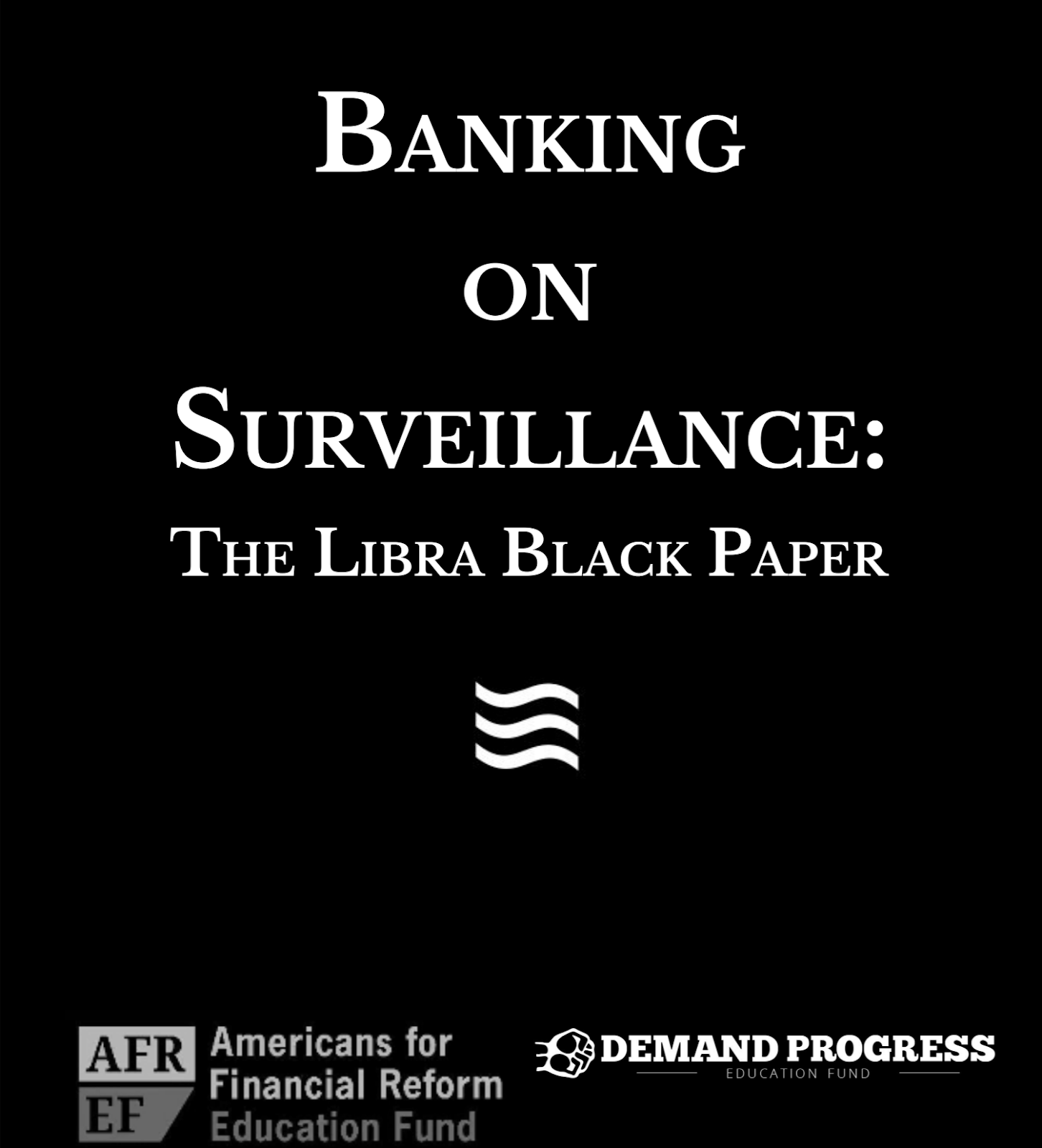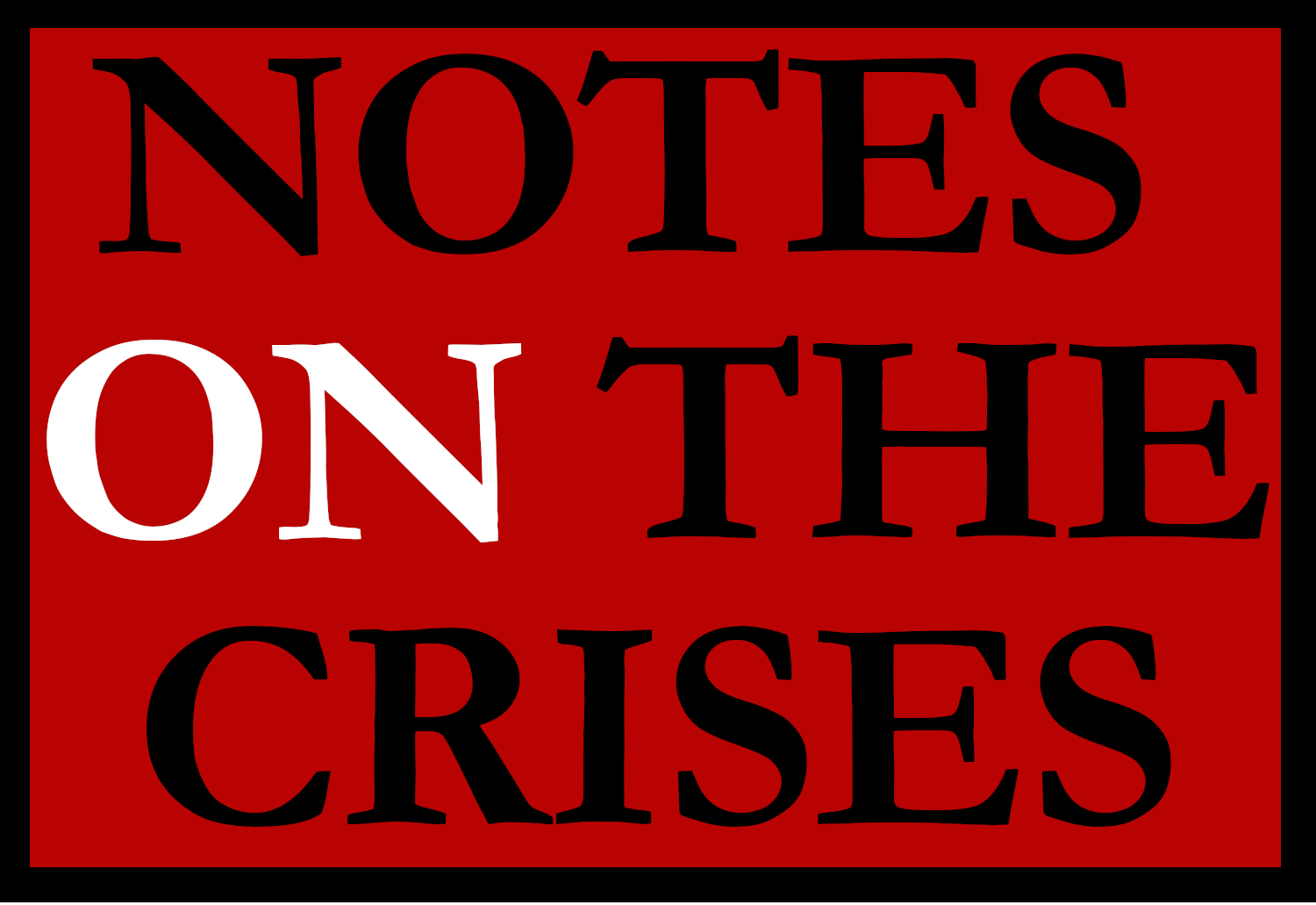Banking on Surveillance: The Libra Black Paper
My Modern Money Network Colleague’s take on Facebook’s Proposed Global Currency


Last week, my Modern Money Network colleague Raúl Carrillo put out a detailed and rich report, a joint project of Americans for Financial Reform Education Fund and Demand Progress Education Fund, arguing Facebook’s proposed “currency” Libra should not go into effect as proposed. While it's far too comprehensive for me to go through in its entirety here, I do want to highlight some of its main and important points (but please go read it yourself).
Facebook’s Libra has, of course, been controversial from its initial announcement. The original “White Paper” explaining how it would function was vague on many critical points while their updated White Paper 2.0, as Raúl details, is still missing key details.
Reading Carrillo’s masterful work, the key point that I find important to highlight for a more general audience is that in the rush to respond to Facebook’s Libra, conceptualizing what the project is and what it has the power to do has taken a backseat to trying to fit into one box within the existing regulatory system. But when we’re talking about a company as powerful as Facebook, we shouldn’t be separating these questions. Facebook and Libra will do whatever they can get away with. We need to step back before diving in.
This is what makes the “Libra Black Paper” special: although it is extremely technical, and does go through statutes and regulations in detail, the analysis is centered within deeper and broader theories about Big Tech business models and arbitrage of the financial system.
In fact, reading this report, I’m reminded of my own piece with Professor John Haskell on shadow virtual currencies (and not just because Raúl cites it). In our essay, Haskell and I note that legal analysis of virtual currency is usually limited to definitional debates about instrument classification, comments on jurisdictional complexity, and general criticism of technology. But the Libra Black Paper goes beyond this, and begins to do what Prof. Haskell and I say is urgently needed: it initiates a more structurally complex analysis, that highlights how virtual currency projects operate within public institutional infrastructure and society more broadly. Here’s Carrillo, encapsulating the threat of Libra in the report’s Conclusion:
The danger with Libra is that Facebook and a cartel of junior partners will leverage their platform power to establish a global financial surveillance system, on the back of public monetary systems.
By making the case that Facebook is really proposing to create both a global virtual shadow currency and a public-private dragnet, Carrillo helps us look more expansively at the problem and all the different ways to resolve it. Throughout the report, he makes it clear that we need a two-pronged approach that focuses on Libra’s privacy violations as much as its potential to threaten financial stability. By taking this broad view, he comes up with innovative ways of tackling Libra (and similar projects that may emerge in the future).
I’ll save you the specific regulatory recommendations for the FTC, SEC, CFTC, etc. (Again, the report is really worth reading). But each of these sections of the Black Paper plugs right into some of the most pressing debates about virtual currency going on right now. His proposed way for the administrative state for dealing with the shadow money portion of the Libra proposal as expansively as it can is especially innovative. He argues that the “Financial Stability Oversight Council”, an interagency group produced by Dodd-Frank, should designate a subsidiary of the “LIbra Association” as a “Systemically Important Financial Market Utility”. This will subject it to Federal Reserve regulation, as well as regulation from a number of other agencies, no matter how specific instruments get classified. Raúl’s diagnosis of the problem also leads him to a broader approach to shadow money in which he proposes legislative fixes, as well as a set of public options in financial services and virtual money (which I may discuss elsewhere) to tackle these problems. I’m struck by how Raúl’s report strikes a similar chord to the conclusion of the piece Professor Haskell and I wrote on shadow virtual currency:
As we see with the response to Facebook’s Libra, some attempts at synthetic finance franchise making are too audacious to be contemplated. Rather, we would like to reorient those interested in money design and financial stability to adopt a “wall street view” and see the possibilities (and thus the dangers) in future financial and legal innovation. This is key to taking the initiative in money design away from large corporations and their brilliant lawyers. This exercise also reveals that for all the technical details and seeming mundanity, those who seek to synthesize “shadow monies” use imagination and creative speculation as much as any other tool in the development of finance. We must be similarly inventive in disrupting them as money designers ourselves, which means eliminating the structural drivers of large denomination money shortages and the demand for benchmark yielding safer collateral
In my view, Raúl Carrillo has answered the call for inventiveness that we laid out there and I really hope his work, in turn, spurs on a lot of similarly creative work in the financial regulation and tech regulation spaces. Facebook has found itself quite a formidable enemy in Raúl.
Sign up for Notes on the Crises
Currently: Comprehensive coverage of the Trump-Musk Payments Crisis of 2025
